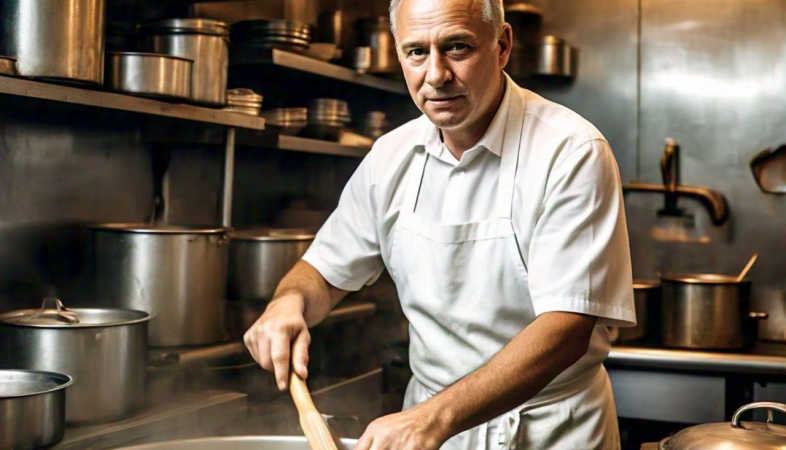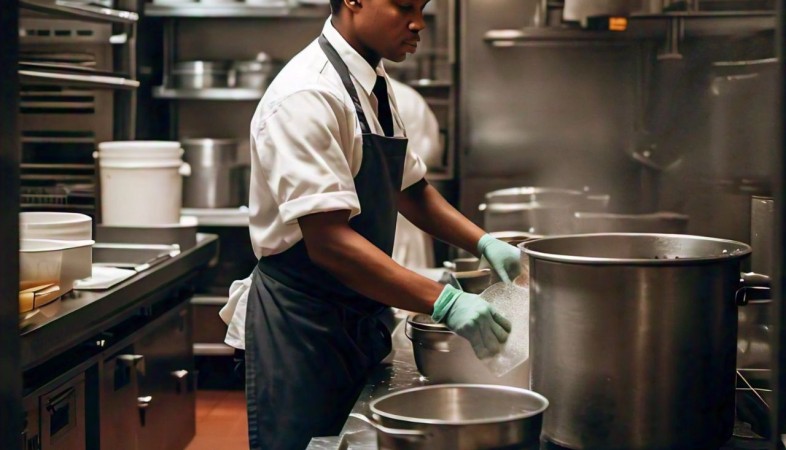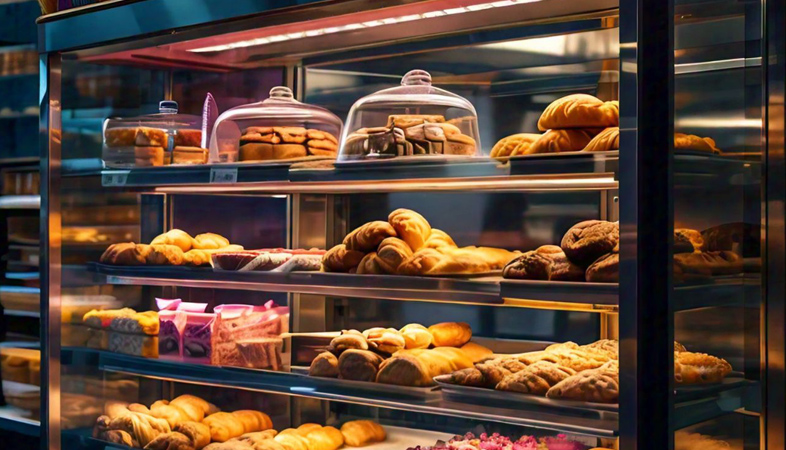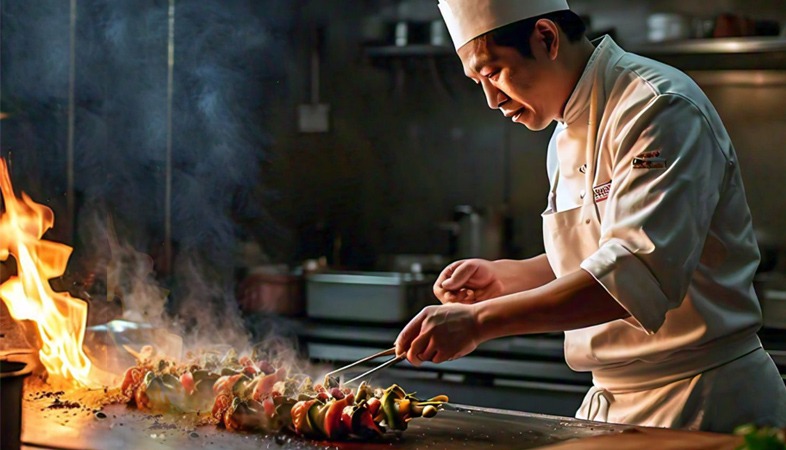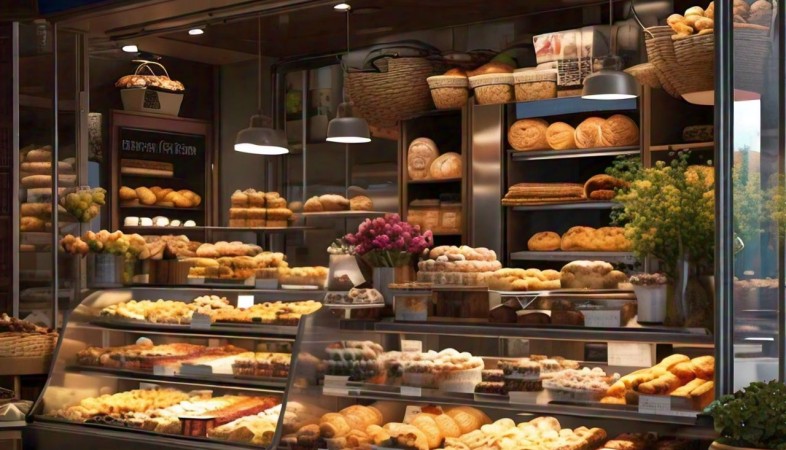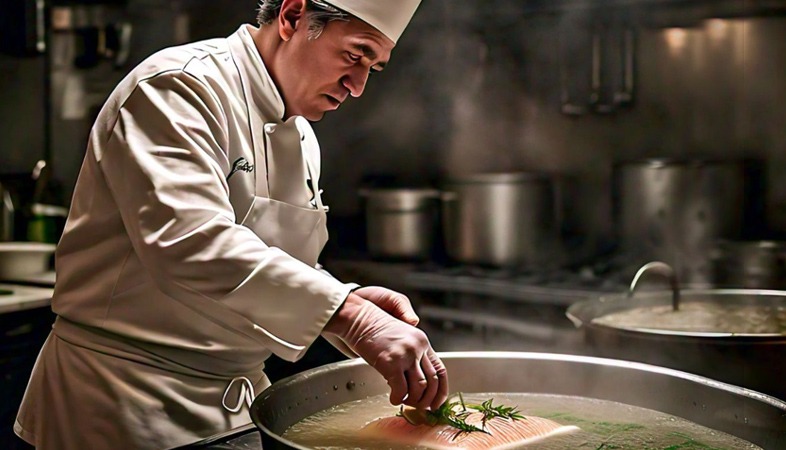Effective Communication Between Kitchen Stewards and Culinary Staff
Effective communication between kitchen stewards and culinary staff is essential for maintaining cleanliness, efficiency, and teamwork in a foodservice establishment.
Effective communication between kitchen stewards and
culinary staff is essential for maintaining a smooth and efficient operation in
any foodservice establishment. Here’s how fostering clear and productive
communication can enhance teamwork and overall performance in the kitchen:
Clear Expectations and Roles: Establishing clear expectations and defining roles for both kitchen stewards and culinary staff is crucial. Stewards should understand their responsibilities in maintaining cleanliness, handling kitchenware, and supporting culinary operations. Culinary staff should communicate their needs regarding food preparation, timing, and specific requirements for dishes. This clarity ensures that everyone knows their role in the workflow and can work together seamlessly.
Open Lines of Communication: Encourage an environment where kitchen stewards and culinary staff feel comfortable communicating openly. This includes sharing feedback, asking questions, and addressing concerns promptly. Regular team meetings or briefings can provide opportunities to discuss upcoming events, special requests, or changes in procedures. Clear channels, such as communication boards or digital platforms, can also facilitate communication across shifts or during busy periods.
Effective Listening: Communication is a two-way street. It’s essential for kitchen stewards to actively listen to culinary staff to understand their needs and preferences. Whether it’s about specific cleaning requirements for utensils or adjustments to the workflow during peak hours, attentive listening fosters mutual understanding and helps prevent misunderstandings or errors.
Timely Reporting of Issues: Prompt reporting of any issues or concerns is crucial for maintaining kitchen operations smoothly. Kitchen stewards should immediately notify culinary staff of equipment malfunctions, shortage of supplies, or any hygiene-related issues that may impact food preparation. This proactive approach allows culinary staff to address problems swiftly and minimize disruptions in service.
Respect and Professionalism: Foster a culture of respect and professionalism between kitchen stewards and culinary staff. Recognize the importance of each team member’s role in contributing to the overall success of the kitchen. Appreciating the efforts of both stewards and chefs in maintaining high standards of cleanliness and food quality promotes a collaborative spirit and enhances morale.
Cross-Training Opportunities: Providing cross-training opportunities can enhance communication between kitchen stewards and culinary staff. When stewards understand basic food preparation techniques or culinary terminology, they can better anticipate the needs of chefs and assist with tasks more effectively. Similarly, culinary staff who understand stewarding responsibilities can appreciate the importance of maintaining a clean and organized workspace.
Use of Technology: Utilize technology to streamline communication processes in the kitchen. Digital communication tools, such as messaging apps or kitchen management software, can facilitate quick exchanges of information between stewards and culinary staff. These tools can also be used to track inventory levels, schedule cleaning tasks, or update procedural changes, ensuring that everyone is informed and on the same page.
Feedback and Continuous Improvement: Encourage feedback from both kitchen stewards and culinary staff on ways to improve communication and workflow efficiency. Regularly seek input on what’s working well and where there may be room for improvement. Implementing suggestions for enhancement shows a commitment to teamwork and fosters a culture of continuous improvement in the kitchen.
Effective communication between kitchen stewards and culinary staff is essential for maintaining cleanliness, efficiency, and teamwork in a foodservice establishment. By establishing clear expectations, promoting open communication, fostering mutual respect, providing cross-training opportunities, utilizing technology, and encouraging feedback, kitchens can enhance collaboration and achieve optimal performance. This collaborative approach not only improves daily operations but also contributes to a positive working environment and enhances the overall dining experience for guests.
.png)


